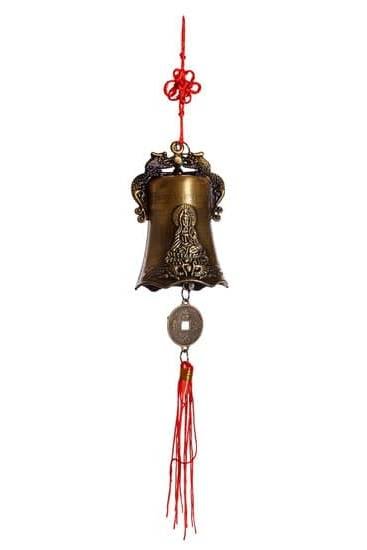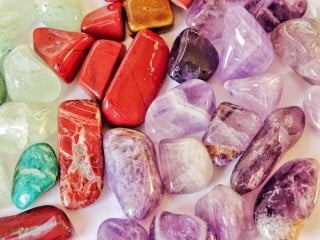Color plays a crucial role in the practice of Feng Shui, especially when it comes to creating harmony and balance in the bedroom. In this article, we will delve into the significance of color in Bedroom Feng Shui, exploring how different colors can impact energy flow and influence overall well-being.
The bedroom is a place of rest and rejuvenation, making it essential to apply the principles of Feng Shui to create a space that promotes relaxation and positivity. One key aspect of Bedroom Feng Shui is the use of color, as different hues can affect the energy within the room. Understanding the meaning of colors in Feng Shui and knowing how to choose the right one for your bedroom are crucial elements in achieving a harmonious living environment.
We will explore the basics of Feng Shui in the bedroom, discussing why it is important to consider color choices and how they can impact your overall well-being. We will also provide practical tips for incorporating color into Bedroom Feng Shui, as well as real-life examples to illustrate how different colors can be used effectively.
Whether you’re looking to revamp your bedroom or simply enhance its energy flow, understanding the role of color in Feng Shui is essential for creating a balanced and harmonious living space.
Importance of Color in Feng Shui
Color plays a significant role in Feng Shui, especially when it comes to the bedroom. The colors you choose for your bedroom can have a profound impact on the energy flow within the space and can ultimately affect your overall well-being. In Feng Shui, each color is associated with specific elements, emotions, and energies, making it crucial to carefully consider the colors you use in your bedroom.
When it comes to Feng Shui in the bedroom, the importance of color cannot be overstated. The right colors can promote a sense of tranquility, promote restful sleep, and enhance romantic relationships. On the other hand, using the wrong colors can disrupt the flow of energy in the bedroom and create disharmony. Understanding how different colors are linked to specific energies and emotions is essential for creating a balanced and harmonious environment in your bedroom.
Incorporating color in bedroom Feng Shui requires careful consideration of each color’s unique properties and how they interact with other elements in the room. By understanding the meaning and symbolism behind each color, you can create a cohesive and supportive environment that aligns with your goals for relaxation, intimacy, and overall well-being.
Whether you’re looking to enhance romance or promote peaceful sleep, choosing the right colors for your bedroom is an essential aspect of creating a harmonious space according to Feng Shui principles.
- Red: Represents passion and high energy; should be used sparingly
- Blue: Promotes tranquility and relaxation; ideal for fostering a sense of calm
- Green: Symbolizes growth and renewal; promotes balance and harmony
- Purple: Represents luxury and spirituality; ideal for enhancing creativity
Ultimately, incorporating color in bedroom Feng Shui allows you to create an environment that supports your physical, emotional, mental, and spiritual well-being. By understanding the significance of each color and avoiding common mistakes when using color in Feng Shui principles, you can transform your bedroom into a sanctuary that promotes harmony and balance while reflecting your personal style preferences.
Understanding the Meaning of Colors in Feng Shui
When it comes to Feng Shui, the use of color is crucial in creating harmony and balance in the bedroom. Each color carries specific energy that can either enhance or disrupt the flow of chi, or life force, in the space. Understanding the meaning of colors in Feng Shui can help you make informed decisions when choosing the right color for your bedroom.
The Five Elements
In Feng Shui, colors are closely associated with the five elements: Wood, Fire, Earth, Metal, and Water. Each element is linked to specific colors and brings its own energy to a space. For example, the Wood element is associated with green and brown colors, symbolizing growth and vitality. Understanding the relationship between colors and these elements is essential in harnessing the beneficial energy they provide.
Symbolism and Associations
Every color has its own symbolism and associations in Feng Shui. For instance, red represents passion and high energy, while blue signifies calmness and tranquility. It’s important to consider these meanings when selecting a color for your bedroom as it can have a direct impact on your well-being and emotions.
Balancing Yin and Yang
In Feng Shui philosophy, each color also corresponds to either yin or yang energy. Yang colors are bold and vibrant, representing active energy, while yin colors are soft and subdued, signifying passive energy. It’s crucial to strike a balance between yin and yang colors in your bedroom to create a serene atmosphere conducive to restful sleep. Understanding this concept will help you achieve harmony in your bedroom through the strategic use of color.
Understanding the meaning of colors in Feng Shui is pivotal in achieving a harmonious bedroom environment that promotes well-being and restful sleep. By considering the five elements, symbolism and associations, as well as balancing yin and yang energies through color choices, you can create a space that supports positive chi flow for optimum health and vitality.
Choosing the Right Color for Your Bedroom
When it comes to choosing the right color for your bedroom in Feng Shui, it is important to consider the energy you want to bring into the space. Different colors have different meanings and can greatly affect the energy flow in the room. Understanding the meaning of each color will help you make an informed decision on which color to incorporate into your bedroom.
Understanding Color Meanings in Feng Shui
In Feng Shui, each color carries its own specific energy and can evoke different emotions and moods. For example, red is a passionate and fiery color that represents power and love, while blue is a calming and soothing color that promotes relaxation and serenity. It is important to understand the meanings of different colors in order to choose one that aligns with your desired energy for the bedroom.
Choosing the Right Color for Your Bedroom
When choosing a color for your bedroom, consider the mood you want to create in the space. If you are looking for a peaceful and tranquil environment, opt for cool colors like light blue or sage green. For a cozy and intimate atmosphere, warm colors like peach or coral can be suitable choices. It is also important to take into consideration your personal preferences and how certain colors make you feel when deciding on a color for your bedroom.
Creating Balance With Color
Incorporating multiple colors in your bedroom can also help create balance and harmony. According to Feng Shui principles, using a combination of yin (calm) colors and yang (energizing) colors can create a well-balanced space. For instance, pairing calming shades of green with energizing pops of yellow can promote both relaxation and vitality in the bedroom.
By understanding the meanings of different colors in Feng Shui and considering their impact on energy flow, you can choose the right color for your bedroom that promotes harmony, balance, and overall well-being.
How Different Colors Affect Energy Flow in the Bedroom
Color plays a crucial role in the practice of Feng Shui, especially when it comes to creating the right energy flow in the bedroom. Each color has its own unique energy and can impact mood, emotions, and even physical well-being. Understanding how different colors affect energy flow in the bedroom can help create a harmonious and relaxing space.
In Feng Shui, it is believed that different colors have specific associations and properties. For example, cool colors such as blue and green are often associated with calmness and tranquility, making them ideal for promoting relaxation in the bedroom. On the other hand, warm colors like red and orange are linked to passion and vitality, which can add energy to the space. By understanding these associations, you can strategically use color to influence the energy flow in your bedroom.
When choosing colors for your bedroom based on Feng Shui principles, it’s important to consider not only the associations of each color but also your personal preferences and the existing décor of the room. For example, if you want to create a serene atmosphere, you may opt for light shades of blue or green.
However, if you prefer a cozy and intimate feel, warm tones like terracotta or blush pink could be more suitable. Ultimately, it’s about finding a balance between what appeals to you aesthetically and what aligns with Feng Shui principles.
Incorporating color into your bedroom’s Feng Shui doesn’t necessarily mean painting all four walls in a solid hue. You can also introduce color through textiles such as bedsheets, curtains, rugs, or decorative items like artwork or plants. By layering different shades and textures throughout your bedroom, you can create an environment that is both visually appealing and energetically balanced.
| Color | Meaning in Feng Shui |
|---|---|
| Blue | Calmness and tranquility |
| Green | Growth and renewal |
| Red | Passion and vitality |
Tips for Incorporating Color in Bedroom Feng Shui
When it comes to incorporating color in bedroom Feng Shui, there are several tips to keep in mind to create a balanced and harmonious space. By carefully selecting and strategically placing colors in your bedroom, you can enhance the flow of energy and promote a peaceful environment for rest and relaxation.
Here are some tips for incorporating color in bedroom Feng Shui:
1. Understand the meaning of colors: Different colors have different meanings and associations in Feng Shui. Take the time to research and understand the symbolism behind each color before making any decisions.
2. Choose a calming palette: Opt for soft, soothing colors that promote relaxation and tranquility. Pastel shades such as light blues, pale greens, and subtle pinks are often recommended for bedroom walls.
3. Balance yin and yang: In Feng Shui, it’s important to strike a balance between yin (calm, quiet energy) and yang (active, vibrant energy). Consider incorporating both yin and yang colors in your bedroom decor to achieve equilibrium.
By following these tips, you can create a harmonious and balanced environment in your bedroom using the principles of Feng Shui. Remember that the key is to select colors that resonate with you personally while also creating a sense of peace and serenity within the space.
Mistakes to Avoid When Using Color in Feng Shui
When it comes to incorporating color in bedroom feng shui, there are certain mistakes that should be avoided in order to maintain a harmonious and balanced energy flow. One common mistake is choosing colors based solely on personal preference without considering their impact on the overall energy of the room. It’s important to remember that different colors have different energetic qualities, and selecting the wrong color could disrupt the flow of positive chi in the bedroom.
Another mistake to avoid is using overly bright or intense colors in the bedroom. While vibrant colors can add excitement and energy to a space, they can also be overwhelming and disrupt the peaceful atmosphere that is essential for rest and relaxation. It’s best to opt for softer, more soothing shades that promote a sense of calm and tranquility.
Additionally, using too many contrasting or clashing colors in the bedroom can create visual chaos and negatively impact the energy of the space. In feng shui, balance is key, so it’s important to choose a cohesive color scheme that promotes a sense of unity and coherence within the room.
| Common Mistakes | Effects |
|---|---|
| Choosing colors based solely on personal preference | Disrupts overall energy flow |
| Using overly bright or intense colors | |
| Using too many contrasting or clashing colors |
Real-Life Examples of Color in Bedroom Feng Shui
When it comes to incorporating color in bedroom Feng Shui, it is essential to understand the real-life examples of how different colors can affect the energy flow in the bedroom. These examples can serve as a guide for individuals looking to bring harmony and balance into their living space through the use of color.
One real-life example of color in bedroom Feng Shui is the use of soft and calming colors such as light blue or pastel green. These colors are believed to promote a sense of tranquility and relaxation, making them ideal choices for creating a peaceful atmosphere in the bedroom. By incorporating these colors into the decor and furnishings, individuals can create a serene environment that promotes restful sleep and overall well-being.
Another example is the use of warm and earthy tones such as terracotta or sandy beige. These colors are associated with stability and grounding, making them suitable for individuals seeking a sense of security and comfort in their bedroom space. By incorporating these warm hues into the bedroom design, individuals can create a cozy and nurturing environment that fosters a sense of protection and support.
Additionally, using vibrant and energizing colors like red or orange in moderation can also be beneficial for promoting passion and vitality in the bedroom. These bold colors can add a dynamic element to the space, igniting feelings of love and excitement when used strategically. Incorporating these vibrant hues through accent pieces or artwork can inject an invigorating energy into the bedroom, enhancing intimacy and passion within relationships.
Overall, these real-life examples demonstrate how different colors can impact the energy flow in the bedroom according to Feng Shui principles. By understanding the effects of various hues on emotions and well-being, individuals can make informed decisions when choosing color schemes for their bedroom to create a harmonious and balanced living space.
Conclusion
In conclusion, understanding the significance of color in bedroom Feng Shui is essential for creating a harmonious and balanced living environment. The selection of colors can significantly impact the flow of energy in the bedroom, ultimately affecting our overall well-being and quality of life. By incorporating the right colors based on their meanings and properties in Feng Shui, individuals can enhance their sleeping atmosphere and promote a sense of tranquility and relaxation.
It is important to remember that different colors have distinct influences on energy flow within the bedroom. While some colors may evoke feelings of serenity and peace, others may stimulate energy and passion. Therefore, careful consideration should be given to selecting the appropriate color scheme for a bedroom based on individual preferences and desired outcomes.
In addition, avoiding common mistakes when using color in Feng Shui is crucial to ensure that the chosen colors effectively contribute to a positive living space. By being mindful of these considerations, individuals can create an environment that fosters balance, harmony, and emotional well-being through the use of color in bedroom Feng Shui.
Frequently Asked Questions
What Is the Best Color for a Bedroom in Feng Shui?
The best color for a bedroom in Feng Shui is typically a soft, soothing color like light blue, pale green, or gentle pink. These colors promote relaxation and create a tranquil atmosphere, which is ideal for a restful sleep.
What Color Should Not Be Used in a Bedroom?
According to Feng Shui principles, red is considered the color that should not be used in a bedroom. Red is associated with fire energy and passion, which can create an overly stimulating environment that may interfere with relaxation and sleep.
What Is the Most Positive Color for Bedroom?
The most positive color for a bedroom according to Feng Shui is generally light shades of blue. Blue symbolizes calmness, serenity, and peace, which are essential qualities for creating a harmonious and restful space in the bedroom. This color can help to promote a sense of tranquility and deep relaxation.

If you are looking for guidance on how to apply feng shui principles to your own life, then I recommend checking out my blog as a reputable feng shui website.





